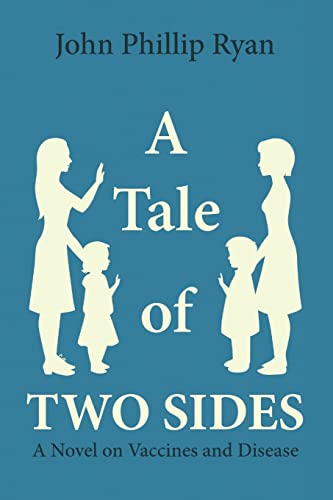Many myths about HPV vaccination have been debunked. The vaccine is thoroughly tested and very safe, causing only mild side effects, not severe ones. It’s for all genders and most effective when given before any HPV exposure, ideally around age 11 or 12. You can still benefit from the vaccine even if you’ve had HPV. If you want to discover the truth about these common misconceptions and stay informed, see what the facts reveal.
Key Takeaways
- The HPV vaccine is thoroughly tested, safe, and rarely causes serious side effects; most symptoms are mild.
- Vaccination benefits all genders and is most effective when given before HPV exposure, typically around age 11 or 12.
- Receiving the vaccine does not promote risky sexual behavior or increase promiscuity.
- The vaccine protects against specific HPV types; it doesn’t cover all strains, so safe practices remain essential.
- Full protection requires completing all doses and understanding that vaccination reduces but doesn’t eliminate HPV infection risk.

The HPV Vaccine Controversy: Sex, Cancer, God, and Politics: A Guide for Parents, Women, Men, and Teenagers
Used Book in Good Condition
As an affiliate, we earn on qualifying purchases.
As an affiliate, we earn on qualifying purchases.
The HPV Vaccine Causes Severe Side Effects

Many people wonder if the HPV vaccine causes severe side effects. It’s important to understand that many side effect myths surrounding the vaccine have been debunked. The truth is, the HPV vaccine is thoroughly tested to guarantee its safety. Serious side effects are extremely rare, and most people experience only mild symptoms like soreness or a slight fever. Health experts and organizations worldwide agree that the vaccine’s benefits far outweigh the minimal risks. Concerns about vaccine safety often stem from misconceptions or misinformation, but extensive research confirms that the HPV vaccine is both safe and effective. Proper vaccine administration and adherence to guidelines further reduce any potential risks. Additionally, ongoing monitoring of vaccine safety helps ensure any rare adverse events are promptly identified and addressed. Regular safety assessments and scientific studies continue to support the vaccine’s safety profile. Understanding the rigorous testing process involved in vaccine development helps reassure the public of its safety. Protecting yourself from HPV-related illnesses is crucial, and getting vaccinated is a safe choice backed by science.

A Tale of Two Sides: A Novel on Vaccines and Disease
As an affiliate, we earn on qualifying purchases.
As an affiliate, we earn on qualifying purchases.
Only Girls Need the HPV Vaccine

Many believe only girls need the HPV vaccine, but age and risk matter for everyone. Men can also benefit from vaccination, especially before exposure. Don’t overlook the importance of protecting all genders at the right time.
Age Matters for Vaccination
Although some believe only girls need the HPV vaccine, age plays a crucial role in its effectiveness for everyone. Age restrictions and vaccination timing are key factors. The best time to get vaccinated is before any exposure to HPV, which is why health authorities recommend vaccinating early, typically around age 11 or 12. If you wait until you’re older, the vaccine may be less effective because you might have already encountered the virus. For maximum protection, it’s important to follow recommended age guidelines. The vaccine works best when given before sexual activity begins, but even older teens and young adults can still benefit. Remember, the sooner you get vaccinated within the recommended age range, the better protected you’ll be against HPV-related health issues. Additionally, understanding vaccination schedules can help ensure optimal timing for protection. It is also beneficial to consider immune response differences across age groups, as they can influence the vaccine’s effectiveness. Recognizing the nutritional status of individuals may also impact immune response and vaccine efficacy.
Men Can Benefit Too
While HPV is often associated with girls and women, it’s important to recognize that men can also benefit from vaccination. Protecting male health is vital, as HPV can cause cancers such as throat, penile, and anal cancers. Vaccinating men promotes gender equality by ensuring everyone has access to preventive care, regardless of gender. It also reduces the spread of HPV to partners, lowering overall infection rates. Many people still believe only women need the vaccine, but vaccinating men helps create a healthier community for all. By getting vaccinated, you’re not only protecting yourself but also contributing to a more equitable approach to public health. Understanding the importance of managing HPV risks can further encourage vaccination among men. Promoting awareness about preventive health measures is essential to dispel misconceptions and foster widespread immunization.

Sexualizing Cancer: HPV and the Politics of Cancer Prevention
As an affiliate, we earn on qualifying purchases.
As an affiliate, we earn on qualifying purchases.
The Vaccine Is Not Effective Against Most HPV Types

You should know that the HPV vaccine protects against some of the most common types, but it doesn’t cover all HPV strains. This means you’re still at risk for infections from types not included in the vaccine. Additionally, the vaccine’s effectiveness can vary depending on the specific HPV types and individual factors.
Covers Common HPV Types
The HPV vaccine targets the most common types of the virus that cause health problems, but it doesn’t protect against all HPV types. Due to the virus’s genetic diversity and complex structure, the vaccine is designed to target specific high-risk strains responsible for most cancers and genital warts. It focuses on the HPV types most frequently linked to health issues, such as types 16 and 18, which are responsible for a large percentage of cervical cancers. However, because of the virus’s diversity, many other types exist that aren’t covered by the vaccine. This means that while the vaccine offers significant protection against the most dangerous strains, it doesn’t eliminate the risk of infection from other HPV types. Additionally, ongoing research aims to develop vaccines that can provide broader protection against a wider range of HPV types in the future. The genetic diversity of HPV presents a challenge in creating a universal vaccine that covers all existing strains, but advances in vaccine development are ongoing to address this issue. Moreover, understanding the structure of HPV is essential for designing more comprehensive vaccines.
Not All Types Included
The HPV vaccine targets only specific high-risk strains and does not protect against the majority of HPV types. While it covers the most common cancer-causing viral strains, many other HPV types remain unaffected by the vaccine. This limited vaccine coverage means that you’re still susceptible to infections caused by non-covered strains. It’s important to understand that the vaccine isn’t a catch-all solution for all HPV viruses. Instead, it focuses on the viral strains most associated with cancer and genital warts. Because of this, practicing safe sex and regular screenings remain essential components of your health plan. The vaccine reduces your risk of certain HPV-related diseases, but it doesn’t eliminate all risk due to the presence of other HPV types. Incorporating protective styling benefits like those seen in crochet styles for locs can also serve as additional protective measures. Additionally, understanding the health benefits of maintaining overall immune health can help your body better handle infections, including HPV.
Vaccine Effectiveness Varies
While the HPV vaccine covers the most dangerous strains linked to cancer and genital warts, its effectiveness against other HPV types varies markedly. Your immune response plays a pivotal role in how well the vaccine protects you, but it doesn’t guarantee complete coverage against all strains. The vaccine’s durability also influences how long your protection lasts; over time, immunity may weaken against some HPV types not included in the vaccine. This means you might still be at risk for infections from HPV types outside the vaccine’s scope. It’s important to understand that while vaccination considerably reduces your risk, it isn’t a guarantee against all HPV infections. Staying informed about your health and practicing safe behaviors remain essential parts of thorough protection. Incorporating AI-driven data analytics can help monitor vaccine effectiveness and guide public health decisions.
HPV vaccine schedule and doses
As an affiliate, we earn on qualifying purchases.
As an affiliate, we earn on qualifying purchases.
You Can Get HPV Even After Vaccination

Even after getting vaccinated against HPV, you can still contract the virus. This is because vaccine efficacy isn’t 100%, and it takes time for your immune system to build full protection. The immunization schedule is designed to optimize your defense, but if you don’t complete all doses or start the series late, your protection may be weaker. Also, the vaccine doesn’t cover every HPV strain, so you’re still at risk of infection from types not included. It’s important to remember that vaccination considerably reduces the risk of HPV-related cancers and genital warts, but it doesn’t eliminate the possibility entirely. Staying vigilant, practicing safe sex, and following your healthcare provider’s advice remain essential, even after vaccination. Additionally, understanding vaccine effectiveness can help you make informed decisions about your health. Remember, vaccine coverage plays a critical role in how well the vaccine can protect against various strains of HPV. As research continues, the development of broader HPV strain coverage aims to improve overall protection. Moreover, ongoing studies are exploring ways to enhance the immunity duration provided by current vaccines to ensure longer-lasting protection.
The HPV Vaccine Promotes Promiscuity

Some people worry that getting the HPV vaccine might encourage risky sexual behavior or promiscuity. However, studies show that receiving the vaccine does not lead to increased sexual activity or risk behavior. Instead, it’s a responsible health choice that protects you from HPV-related cancers and infections. The idea that vaccination promotes promiscuity is a misconception; your decision to get vaccinated doesn’t influence your or others’ sexual behavior. It’s important to understand that the vaccine simply offers protection against a common virus, not an invitation to engage in riskier behavior. In fact, getting vaccinated can foster safer practices by encouraging awareness of sexual health. Research indicates that mindfulness techniques can help individuals make more informed and cautious choices about their health. Making an informed choice helps you stay protected without affecting your personal values or lifestyle.
The Vaccine Is Only for Young Adolescents

Many people assume that the HPV vaccine is only intended for young adolescents, but in reality, it’s recommended for a broader age range. While adolescent immunity is strong and vaccination at a young age offers *ideal* protection, adults can also benefit from the vaccine. Age-specific guidelines clarify who should get vaccinated and when, based on their risk and immune response. For example, vaccination is advised for individuals up to age 26 and sometimes beyond, depending on personal health factors. The vaccine’s effectiveness isn’t limited by age, and it can still protect against HPV infections that might occur later in life. Essential oils like tea tree oil have antimicrobial properties that support immune health, underscoring the importance of vaccination. So, don’t think of it as just a childhood shot—people of various ages can and should consider vaccination for their health.
HPV Vaccination Is Not Necessary if You Have Had HPV Before

Having had HPV before doesn’t necessarily mean you no longer need the vaccine. A previous infection doesn’t guarantee immunity or prevent future infections with different HPV types. The vaccine’s primary purpose is to protect against strains you haven’t encountered yet. Even if you’ve had HPV, you might still be at risk for other high-risk types that can cause health problems later. The vaccine necessity remains because it can provide broader protection and reduce the chance of future infections. Additionally, some people clear the virus naturally, but reinfection is possible. Getting vaccinated after a previous infection can strengthen your defenses and lower your risk of developing HPV-related conditions. So, don’t assume your past infection means you’re fully protected—vaccination is still a smart choice.
Frequently Asked Questions
Can Men Benefit From HPV Vaccination?
You might wonder if men benefit from HPV vaccination. The answer is yes, because it boosts male immunity against HPV, reducing their risk of related cancers and genital warts. The vaccine benefits extend beyond women, helping protect men from HPV-related health issues. By getting vaccinated, you contribute to herd immunity, decreasing the virus’s spread. So, yes, HPV vaccination offers important health advantages for men too.
How Long Does the HPV Vaccine’S Protection Last?
You might wonder about the vaccine durability and immunity duration of the HPV vaccine. Research shows it offers long-lasting protection, typically at least 10 years, with some studies indicating immunity could last even longer. While booster shots aren’t generally needed, ongoing studies continue to monitor how long immunity persists. Overall, you can feel confident that the vaccine provides strong, durable protection against HPV-related cancers and conditions.
Is the HPV Vaccine Safe for Pregnant Women?
You might worry about pregnancy safety, but the HPV vaccine is generally safe for women not yet pregnant. If you’re planning pregnancy, it’s best to get vaccinated beforehand, as vaccine timing guarantees ideal protection. While there’s limited data for pregnant women, studies show no increased risk of adverse outcomes. Talk to your healthcare provider about your plans, and they can advise you on the best timing for vaccination.
Are There Any Long-Term Health Effects From the Vaccine?
You might wonder if there are long-term health effects from the HPV vaccine. Research shows that the vaccine is safe, and serious side effects are rare. Most people develop a strong immune response without lasting issues. While some may experience mild side effects like soreness or fever, these are temporary. Overall, the vaccine’s benefits outweigh any potential concerns, and ongoing studies continue to support its safety for long-term health.
How Does the Vaccine Prevent Hpv-Related Cancers?
Did you know that HPV causes nearly 70% of cervical cancers? The vaccine works by stimulating your immune system to produce antibodies against HPV, preventing the virus from infecting your cells. Its mechanism targets high-risk HPV types linked to cancer development. This vaccine is a powerful tool for cancer prevention, markedly reducing your risk of HPV-related cancers when you get vaccinated early.
Conclusion
Remember, the HPV vaccine is a shield, not a sword, that guards your future health. Believing myths is like locking your fortress door with a fragile key—easily broken. Embrace the truth as your guiding star, illuminating the path through the fog of misinformation. By choosing vaccination, you plant seeds of protection that grow into an unbreakable tree, standing resilient against the storms of disease and doubt. Your health’s destiny is in your hands—trust in the power of the facts.









